How to Streamline Rent Collection and Payment Processes for Rentals in Jupiter
The Importance of Efficient Rent Collection
Rent collection is a critical aspect of property management, and an inefficient process can lead to delayed payments, financial instability, and tenant dissatisfaction. For landlords and property managers in Jupiter, optimizing the rent collection process can improve cash flow, reduce administrative workload, and enhance tenant relationships. By leveraging modern technology, establishing clear policies, and implementing best practices, you can streamline rent collection and create a hassle-free experience for all parties involved.
Efficient rent collection is not just about receiving payments on time—it also involves minimizing disputes, automating processes, and ensuring compliance with local regulations. Property owners who implement robust rent collection systems experience fewer issues with late payments and non-payment, leading to better tenant retention and a more stable financial outlook.
Choosing the Right Payment Methods
The first step in streamlining rent collection is offering multiple payment options. Traditional methods like cash and checks are becoming outdated, while digital solutions provide convenience and efficiency. Diversifying payment methods ensures that tenants can choose the most convenient option, reducing friction in the rent collection process.
1. Online Payment Platforms
Using online payment platforms such as PayPal, Zelle, or Stripe enables tenants to make payments instantly. These platforms offer:
Convenience: Tenants can pay from anywhere at any time, reducing the need for physical drop-offs or mailing checks.
Speed: Payments are processed instantly or within a few business days, improving cash flow for landlords.
Security: Transactions are encrypted and secure, reducing fraud risks and ensuring compliance with data protection standards.
Automation: Many platforms allow landlords to set up automatic invoices, making it easier to track payments and generate financial reports.
2. Automated Bank Transfers
Automated Clearing House (ACH) transfers allow tenants to set up direct debits, ensuring timely payments each month. The benefits include:
Consistency: Reduces the likelihood of late payments, as funds are automatically deducted from tenants’ accounts.
Automation: Eliminates the need for manual reminders, making rent collection smoother and more predictable.
Lower Fees: Compared to credit card payments, ACH transfers often have lower transaction costs, making them a cost-effective option for landlords.
3. Mobile Payment Solutions
Apps like Venmo and Cash App offer another convenient way for tenants to pay rent. These solutions are particularly popular among younger renters who prefer mobile-based transactions. Benefits include:
Ease of Use: Simple interfaces make it easy for tenants to send payments.
Instant Transfers: Funds can be received quickly, helping landlords maintain steady cash flow.
Notification Features: Many mobile apps send alerts when payments are sent or received, improving communication between landlords and tenants.
4. Credit and Debit Card Payments
While credit and debit card payments may incur processing fees, they offer a convenient and widely accepted option for tenants. Some property management systems allow landlords to absorb or pass these fees onto tenants, ensuring flexibility in payment options.
Establishing Clear Payment Policies
A well-defined rent payment policy helps set expectations and reduces misunderstandings. Clear guidelines make it easier for tenants to comply with payment requirements and reduce the chances of disputes.
1. Payment Due Dates
Clearly specify the due date each month and whether there is a grace period. Common practices include:
Standard due date: The 1st of the month, unless otherwise agreed upon.
Grace period: 3-5 days before late fees apply, allowing some flexibility for tenants facing temporary financial difficulties.
Penalties for late payments: Clearly state any applicable fees or interest charges for overdue rent.
2. Late Fees and Penalties
Establishing late fees discourages delayed payments. Typical policies include:
A flat fee (e.g., $50 per late payment) to ensure compliance without being overly punitive.
A percentage of the rent (e.g., 5% of the monthly rent) as an alternative method for calculating penalties.
A daily fee for each day rent remains unpaid, encouraging tenants to resolve outstanding balances quickly.
3. Partial Payments and Payment Plans
Clarify whether you accept partial payments and under what conditions. If you offer payment plans, outline the terms and ensure tenants understand their responsibilities. A structured payment plan can help tenants facing financial difficulties while ensuring landlords still receive rent in a timely manner.
Implementing an Online Rent Collection System
Technology plays a significant role in modernizing rent collection. Using an online rent collection system can streamline processes, reduce errors, and improve efficiency.
1. Property Management Software
Software like Buildium, AppFolio, and Rentec Direct automates rent collection and integrates with accounting systems. Key features include:
Automatic invoicing and reminders, reducing administrative workload.
Online payment processing, enabling tenants to pay through multiple digital channels.
Tenant payment tracking and reporting, making it easier to identify late payments and outstanding balances.
Integration with financial reporting tools, allowing landlords to generate tax reports and monitor revenue trends.
2. Recurring Payments
Encourage tenants to set up automatic recurring payments to minimize late payments and administrative work. This feature is especially useful for long-term tenants who prefer a “set it and forget it” approach to rent payments.
3. Digital Records and Receipts
Providing digital receipts for rent payments helps maintain transparency and serves as a record for both tenants and landlords. Many online systems generate automatic receipts upon successful transactions. Digital records reduce disputes and provide an audit trail for tax purposes.
Communicating with Tenants
Clear and consistent communication helps prevent payment issues and fosters a positive landlord-tenant relationship. Open lines of communication ensure that tenants feel informed and supported, reducing stress and friction in the rent collection process.
1. Payment Reminders
Use automated reminders via email or text messages to notify tenants of upcoming due dates. Sending friendly reminders a few days before rent is due can significantly reduce late payments and improve compliance.
2. Open Channels for Payment Concerns
Ensure tenants can easily reach you if they have questions or financial difficulties. Offer support and possible solutions, such as payment plans or extensions in cases of genuine hardship. A proactive approach to tenant concerns can improve retention and reduce turnover.
3. Educating Tenants on Payment Methods
Some tenants may be unfamiliar with online payment options. Provide step-by-step guides and assistance to help them transition smoothly. Creating a tenant onboarding guide that explains payment methods and policies can improve understanding and compliance.

Get a Free Rental Analysis
Want to know how much your home will rent for? We’ll send you a free rental report!
Leveraging Technology for Streamlined Rent Collection
Benefits of Digital Rent Collection
Technology is transforming the way landlords and property managers collect rent. By implementing digital rent collection methods, property owners in Jupiter can significantly reduce late payments, improve efficiency, and provide tenants with a seamless payment experience. Some key benefits of digital rent collection include:
Automation of Payments: Automated systems ensure timely payments by deducting rent directly from tenants’ accounts on a scheduled basis.
Reduced Administrative Burden: Digital payment tracking minimizes the need for manual record-keeping, reducing errors and saving time.
Enhanced Security: Online payment methods offer encryption and fraud protection, reducing the risks associated with cash or check transactions.
Convenient Access: Tenants can pay rent from anywhere, at any time, using their preferred digital payment method.
Faster Processing: Unlike traditional checks, which can take days to clear, digital payments are processed quickly, ensuring cash flow stability for landlords.
Selecting the Best Online Payment Platform
Choosing the right online payment platform is crucial for streamlining rent collection. Different platforms offer varying features, so landlords should select one that best fits their needs. Here are some of the top online rent payment solutions available for landlords in Jupiter:
1. PayPal and Venmo
PayPal and its subsidiary Venmo provide user-friendly options for tenants to send rent payments directly to landlords. Benefits include:
Easy setup and integration with bank accounts.
Instant payment notifications for both landlords and tenants.
Secure transactions with fraud protection features.
Low fees for bank-to-bank transfers, though credit card transactions may incur additional charges.
2. Zelle
Zelle is a widely used payment service that allows direct bank transfers without transaction fees. Many banks already support Zelle, making it convenient for tenants who prefer direct bank payments.
3. Property Management Software
For landlords managing multiple properties, using property management software like Buildium, Rentec Direct, or AppFolio can centralize rent collection and other administrative tasks. These platforms offer:
Automated rent reminders and invoicing.
Tenant portals for making payments and accessing records.
Integrated accounting tools for financial tracking and tax preparation.
Reporting features to monitor payment trends and overdue accounts.
Encouraging Tenants to Use Online Payments
Some tenants may be hesitant to switch to digital payments due to unfamiliarity or concerns about security. To encourage adoption:
Educate tenants on the benefits of online payments, emphasizing convenience and security.
Provide step-by-step instructions for setting up digital payment methods.
Offer incentives, such as small discounts for tenants who enroll in automatic payments.
Ensure accessibility by offering multiple payment options so tenants can choose what works best for them.
Set expectations in the lease agreement by specifying digital payments as the preferred method.
Automating Rent Reminders and Late Payment Notices
Even with streamlined payment options, some tenants may still forget to pay rent on time. Automating reminders and late notices can help address this issue efficiently.
1. Pre-Scheduled Payment Reminders
Sending automated reminders via text, email, or app notifications a few days before rent is due increases the likelihood of on-time payments. Some property management systems allow landlords to set up recurring reminders to ensure consistency.
2. Late Payment Notifications
If a tenant misses the payment deadline, an automated late payment notice can be sent immediately. This message should:
Politely remind the tenant of their outstanding balance.
Outline any applicable late fees and due dates.
Provide a direct payment link to simplify the process of resolving the overdue amount.
3. Personalized Follow-Ups
For tenants who consistently pay late, a personalized follow-up via phone call or email may be necessary. This approach shows that the landlord values communication while reinforcing the importance of timely payments.
Handling Late Payments and Avoiding Disputes
Despite best efforts, late payments can still occur. Handling them efficiently minimizes financial disruptions while maintaining a good relationship with tenants.
1. Implementing a Clear Late Fee Policy
A structured late fee policy encourages timely payments. Typical approaches include:
A fixed penalty, such as $50 for each late payment.
A percentage-based fee, such as 5% of the rent amount.
Daily late fees that accrue until the rent is fully paid.
Clearly state these terms in the lease agreement to avoid confusion.
2. Offering a One-Time Grace Period
To accommodate tenants facing temporary financial difficulties, landlords can offer a one-time grace period before imposing penalties. This approach fosters goodwill and encourages long-term tenant retention.
3. Setting Up a Payment Plan
For tenants experiencing financial hardship, offering a structured payment plan can be a practical solution. Define clear terms for repayment, including:
The adjusted payment schedule.
The additional amount to be paid each month.
The consequences of missing an installment.
By working with tenants on solutions, landlords can avoid costly evictions and maintain stable occupancy rates.
4. Escalating Non-Payment Issues
If a tenant continuously fails to pay rent despite multiple notices and discussions, landlords may need to take legal action. Steps include:
Sending a final written warning outlining the outstanding balance and potential eviction consequences.
Filing a formal eviction notice if the tenant does not resolve the issue within the legally required timeframe.
Consulting a real estate attorney to ensure compliance with Jupiter’s rental laws before proceeding with eviction.
Using structured escalation procedures ensures that landlords follow legal requirements while protecting their financial interests.
Enhancing Landlord-Tenant Relationships Through Transparency
Successful rent collection is not just about enforcing policies—it also involves building trust and transparency with tenants. A positive landlord-tenant relationship can lead to higher retention rates and fewer disputes.
1. Providing Clear Lease Agreements
A comprehensive lease agreement should outline all rent payment terms, including:
The accepted payment methods.
Due dates and grace periods.
Late fees and potential penalties for non-payment.
Procedures for dispute resolution.
2. Maintaining Open Communication
Encouraging tenants to communicate any financial difficulties or concerns can prevent misunderstandings. Landlords should be approachable and responsive, creating an environment where tenants feel comfortable discussing potential issues before they escalate.
3. Offering Incentives for Good Payment History
Rewarding tenants for consistent on-time payments can encourage positive behavior. Consider offering:
Small rent discounts for tenants with a perfect payment record.
Gift cards or incentives for tenants who refer new residents.
Flexible lease renewal terms for responsible tenants.
By fostering mutual respect and understanding, landlords can streamline the rent collection process while creating a stable, tenant-friendly rental environment in Jupiter.

Legal Considerations and Compliance in Rent Collection
Understanding Florida’s Landlord-Tenant Laws
Rent collection in Jupiter, like the rest of Florida, is subject to specific legal regulations. Landlords must ensure compliance with state and local laws to avoid disputes and potential legal issues. Key legal considerations include:
Rent Due Dates and Grace Periods: Florida law does not mandate a grace period for rent payments, meaning landlords can charge late fees immediately if specified in the lease.
Late Fees: While Florida does not have a statutory cap on late fees, they must be considered reasonable and clearly outlined in the lease agreement.
Security Deposits: Landlords must follow state regulations regarding security deposits, including proper handling, storage, and refund procedures.
Eviction Process: If a tenant fails to pay rent, landlords must follow a formal eviction process, beginning with a three-day notice to pay or vacate before proceeding with legal action.
Drafting a Comprehensive Lease Agreement
A well-crafted lease agreement is essential for preventing misunderstandings and ensuring a smooth rent collection process. Key clauses to include are:
Rent Payment Terms: Specify the rent amount, due date, preferred payment methods, and consequences of late payments.
Late Fees and Penalties: Clearly define any additional charges for late rent payments.
Security Deposit Handling: Outline how security deposits will be stored, used, and refunded.
Maintenance Responsibilities: Define tenant and landlord obligations regarding repairs and property upkeep.
Termination and Eviction Clauses: Explain the circumstances under which the lease may be terminated and the eviction process.
By clearly outlining expectations in writing, landlords can minimize disputes and protect their rights.
Handling Evictions and Non-Payment Cases
Despite implementing best practices, some tenants may still fail to pay rent. If this occurs, landlords must follow Florida’s legal eviction procedures to recover unpaid rent or regain possession of their property.
1. Issuing a Three-Day Notice
Florida law requires landlords to issue a three-day notice to pay or vacate before initiating an eviction. This notice should:
Be delivered in person, via certified mail, or posted on the tenant’s door.
Clearly state the amount due and the deadline for payment.
Outline the consequences of non-payment, including eviction proceedings.
2. Filing for Eviction
If the tenant does not comply within three days, landlords can file for eviction with the local court. The legal process involves:
Filing an unlawful detainer lawsuit to remove the tenant.
Serving the tenant with a court summons.
Attending a court hearing, where a judge will decide the case.
Obtaining a writ of possession, allowing law enforcement to remove the tenant if necessary.
3. Avoiding Costly Legal Battles
To prevent unnecessary legal expenses, landlords can consider:
Offering a cash-for-keys agreement, where the tenant voluntarily vacates in exchange for financial compensation.
Working out a payment plan to help tenants catch up on rent.
Mediation services to resolve disputes outside of court.
Best Practices for Efficient Rent Collection
To maintain a smooth and hassle-free rent collection process, landlords should adopt industry best practices. These include:
1. Setting Clear Expectations from the Start
During lease signings, clearly communicate payment policies, due dates, and consequences for late payments. Provide tenants with a welcome packet containing rent payment instructions.
2. Using Professional Property Management Services
For landlords managing multiple properties, hiring a property management company can streamline rent collection and tenant communication. These companies handle everything from digital payments to eviction proceedings, reducing stress for property owners.
3. Offering Multiple Payment Methods
To accommodate different tenant preferences, landlords should offer:
Online payment platforms (Zelle, PayPal, Venmo, or property management software).
Bank transfers or direct deposits.
Traditional checks or money orders for tenants who prefer offline methods.
4. Encouraging Automatic Payments
Auto-pay options reduce the likelihood of missed payments. Many tenants appreciate the convenience of scheduled withdrawals, making this a beneficial feature for landlords.
5. Regularly Reviewing and Updating Policies
Laws and market conditions change over time. Landlords should periodically review and update rent collection policies to stay compliant and improve efficiency. Consulting a real estate attorney ensures that lease agreements align with current legal requirements.
Final Thoughts
Streamlining rent collection and payment processes is essential for landlords in Jupiter to maintain a steady income and foster positive tenant relationships. By leveraging technology, automating reminders, ensuring legal compliance, and adopting industry best practices, property owners can minimize payment issues and enhance their rental business efficiency. Implementing these strategies will not only reduce stress but also contribute to long-term financial stability and tenant satisfaction.
Suggested Relevant Links:
Rent Collection Services Palm Beach
How to Handle Tenant Issues Like a Pro
The Role of Digital Tools in Revolutionizing Property Management in Palm Beach County
The Complete Guide to Tenant Rights and Landlord Responsibilities in Jupiter, FL
How to Use Digital Marketing to Attract Tenants in West Palm Beach
Frequently Asked Questions (FAQ)
1. What is the best way to collect rent from tenants in Jupiter?
The best method depends on tenant preferences, but digital payment platforms such as Zelle, PayPal, and property management software are the most efficient. They ensure fast, secure transactions and automated tracking.
2. Can I charge late fees for overdue rent in Florida?
Yes, but late fees must be clearly stated in the lease agreement and considered reasonable. Florida law does not impose a maximum limit, but excessive fees may not hold up in court.
3. How long do I have to wait before starting an eviction for non-payment?
In Florida, landlords must issue a three-day notice to pay or vacate before filing for eviction. If the tenant does not comply, legal action can proceed through the court system.
4. Are automatic rent payments a good idea?
Yes, auto-pay reduces missed payments and provides landlords with a consistent income stream. Encouraging tenants to set up recurring payments can improve cash flow reliability.
5. What should I do if a tenant refuses to pay rent?
First, send a formal written notice requesting payment. If the tenant still does not pay, explore mediation or a cash-for-keys agreement before resorting to eviction.
6. Can I require tenants to pay rent only online?
Yes, but it must be outlined in the lease agreement. Florida law allows landlords to specify payment methods, but offering multiple options can improve tenant satisfaction.
7. Should I hire a property management company to handle rent collection?
If managing multiple properties or dealing with frequent payment issues, hiring a property management company can streamline rent collection, handle disputes, and improve overall efficiency.




Pingback: Your Guide to Rental Property Management - West Palm Beach